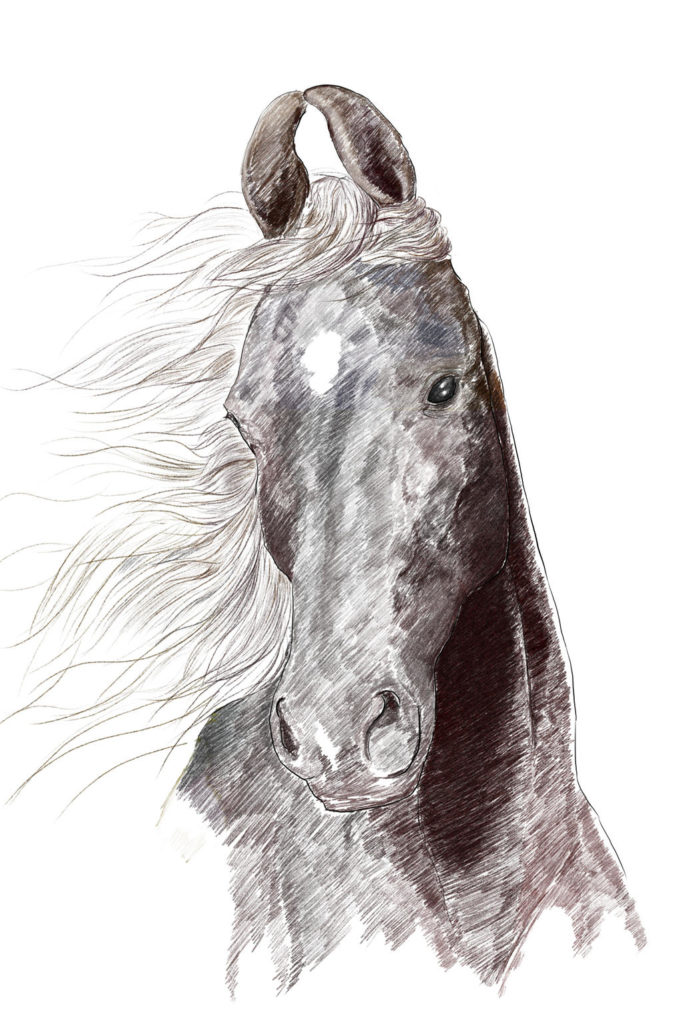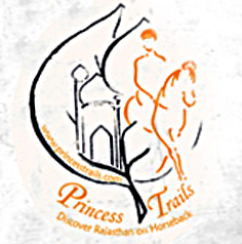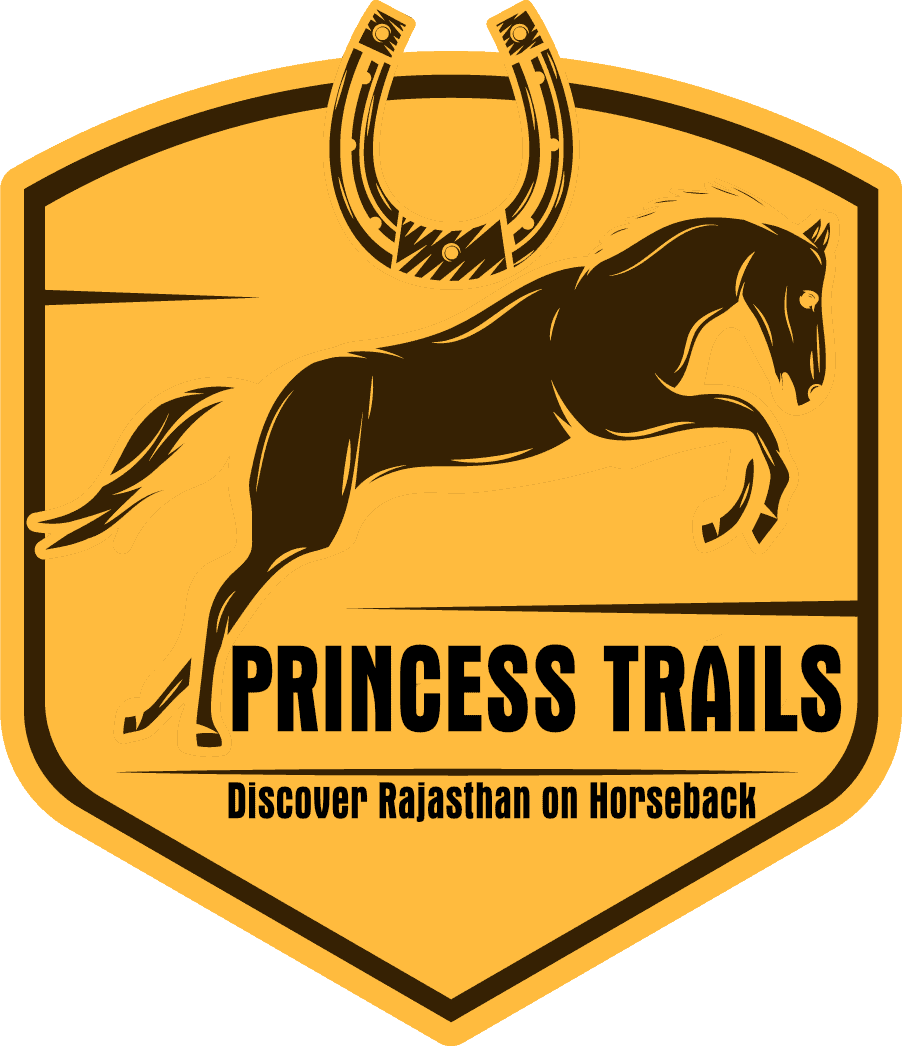Safaris
- Home
- Safaris
Horses Safari
Our Safaris
Our safaris are special for a number of reasons. First and foremost we offer the riders the chance of getting to know rural India with its fantastic country sides, little villages, its great nature and ancient culture, still detectable through scattered monuments such as forts, temples, havelis, etc. Further on our safaris we introduce our riders to the unique Indian Marwari horses, the former mounts of the Maharajas and princes of India.
We handle every safari personally so that our riders feel at home. Every detail is taken care of and no wish is left open.
All our safaris are organized as close to nature as possible and are eco-friendly. We use local supplies and groceries and prevent unnecessary waste. Cooking and lighting is done with gas as not to cut done forest wood.
Our safaris provide rural employment as we occupy local people as helpers, guides or artists. We strongly emphasize local culture and try to help preserve it in giving the people a sense of value and pride.
Our main aim is to show our rider the unique culture and ecology of Rajasthan to our guests and connect this with an unforgettable equestrian experience.
Our horseback safaris lead through the rocky hills of the Aravalli Mountains, geologically one of the oldest mountain ranges in the world, over the fertile plains and the wild savannahs of Western Malwa, with its many forts and strongholds and down into the vast expanse of the Thar Desert stretching out from India into Pakistan.
On our safaris, the guests stay overnight in our tented safari camp in the Indian bush. Every evening we set up our camp at a different location, sometimes next to a little village, sometimes in the loneliness of the Indian landscape.
Each of our camp-site is chosen with the greatest care in order to ensure the safety of the guests and the scenery of the surroundings.
Our safari camp consists of spacious double tents with flooring, proper beds including pillows, sheets and blankets, windows for ventilation and a small pre-tent to leave shoes/boots or to enjoy a morning tea.

Showers and bathroom facilities are provided in our bathroom trolley with running water (hot water is supplied in buckets). Towels, soap and toilet paper are supplied and a wash-basin as well as a mirror attached.
The tents are usually grouped around a central dining area and surrounded by a traditional textile “fence”. The kitchen is open-air, hidden by another textile screen.
Thus away from civilization our safari camp offers all necessary amenities for the riders to feel comfortable and at ease.
This camp layout is not modern but in fact very ancient. Already the Maharajas of old times used to travel through their kingdom in this fashion and later the hunting camps of the British Raj where modeled in the same fashion.
Thus we lean on an old Rajput tradition, which is quite natural as our family descends from an old noble Rajput family of Udaipur.
A normal safari day includes between 5 and 6 hours in the saddle plus a lunch break (lunch is either taken as a lunch packet or brought to the riders by our jeep) and several smaller breaks for sightseeing on the way or a tea stop in the little hamlet by the way. Arrival in the next safari camp is as a rule in the late afternoon. The riders are awaited by tea/coffee and some snacks and of course an inviting shower. Depending upon the place, the rest of the afternoon can be used to do some local sightseeing, a trip to the next village, an evening walk through the countryside or simply some relaxing in the camp. After nightfall we usually prepare a campfire and sometimes some village musicians/artists from the local village come to the camp to perform for us. Depending on the locality the riders can thus experience local folk dances, theatre, music, puppet shows or even horse dance.
Thus every day there is something new to experience and to see, our safaris never get boring and we have many surprises for the riders in store. In some places this may include a visit to the local temple at prayer time, a bullock-cart ride, interaction with local village people, a camel ride, horse dance, the participation in an Indian festival or ceremony and many other things.
For a safari to take place, we need a minimum of 2 guests with a maximum of 10 riders, as we feel that we cannot give larger groups the same individual and personal attention as per our standard.
On the ride we send two guides along with the riders so the group can be divided if necessary and individual comfort and safety is ensured.
We organize horseback safaris from September till April, thus avoiding the hot Indian summer and the monsoon with its heavy rain showers.
Route no.1
Aravalli Safari
Our Aravalli Safari is a horseback safari into the heart of the Aravalli Mountains along the old smuggler trails between the former kingdoms Mewar and Marwar. It includes two of the major sights of Southern Rajasthan, the mighty Kumbhalgarh Fort and the most exquisite Jain Temple of Ranakpur.
The riders start directly in Udaipur and climb from the city up into the mountains, deeper and deeper every day. Leading over rocky slopes and through long beautiful valleys, this trail is one of the most varying of our safari trails, offering steep climbs as well as open stretches of countryside to go for endless gallops.
It is also a trail along a historic tradition. The riders will pass the ancient Hindu temples of Nagda and Eklingji, situated on a mountain plateau, ride through the scenic Haldi Ghati Valley, once a famous battle ground and up to the mighty fortress at Kumbhalgarh, perched on the top of the highest peak of the Aravalli Mountains in the area. Kumbhalgarh was once built as a place of retreat in times of danger for the rulers of Udaipur and it has been defeated only once in its history and even then it took the armies of three major kings and treachery, as the besieging army poisoned the water supply of the defenders. All these battles have long passed, but especially Kumbhalgarh brings home the formerly warring spirit of the Rajputs to even the most rushed visitor.
The lonely mountains around Kumbhalgarh have been converted into a Wildlife Sanctuary and are famous for its population of wolves and the peculiar sloth bears. Both species are to shy to let themselves be seen, but marks can be seen and occasionally the riders can hear a wolf howling in the night.
Most common in the sanctuary and around are monkeys, mongoose and the majestic peacocks and occasionally one of the speckled Cheetal deer can be spotted.
The final highlight of the safari is the most beautiful Jain temple of Ranakpur, situated in a small valley in the Aravalli Mountains, far away from any major town or city.
Renewed for its white splendor it attracts many tourists and pilgrims from India and abroad. Finally the riders reach the Marwar side of the Aravalli Mountains, a region more arid and sandy than the lush southern side. The last day ride already leads through open country with soft sandy tracks and along small village fields. Finishing point for this safari is the hamlet of Narlai situated in the central Rajasthani Bagar, the arid fringe of the Thar Desert.
Route no. 1
Castle-to-Castle Safari
This safari trail is special as accommodation is not in our safari camp but in hand-picked Heritage Hotels on the way. The ride takes place before the backdrop of the Aravalli Mountains and is very similar to our Aravalli Nature-and-Wildlife Safari. It includes the two major sights of Southern Rajasthan, the mighty Kumbhalgarh Fort and the exquisite Jain temple of Ranakpur as well as some havelis and stepwells on the Marwar side of the Aravalli Mountains.
The riders will traverse the lonely mountains around Kumbhalgarh which have been converted into a Wildlife Sanctuary and are famous for its population of wolves and the peculiar sloth bears. Most common in the sanctuary and around are monkeys, mongoose and the majestic peacocks and occasionally one of the speckled Cheetal deer can be spotted.
The highlight of the safari is the most beautiful Jain temple of Ranakpur, situated in a small valley in the Aravalli Mountains, far away from any major town or city.
Renewed for its white splendor it attracts many tourists and pilgrims from India and abroad. Finally the riders reach the Marwar side of the Aravalli Mountains, a region more arid and sandy than the lush southern side. The last day ride already leads through open country with soft sandy tracks and along small village fields. Finishing point for this safari is the hamlet of Jojawar near Jodhpur situated at the edge of the Thar Desert.
Route no.2
Pushkar Fair Safari
Once a year we organize a horseback safari from Udaipur to the Camel Market and Pushkar Fair in this little town at the edge of the Thar Desert.
Being a certain highlight of our safari year, this safari is certainly most spectacular firstly for its great landscapes and secondly of course for the participation in the colorful Pushkar Fair, probably one of the most vibrant festivals of India.
The safari trail leads from the Aravalli Mountains with its unique geographic features down into the great Thar Desert and the little town of Pushkar. Considered a holy town, once a year Pushkar sports the biggest Camel Market of India, which is also a religious festival and a handicraft fair. There are only a few places of interest along the way but the rather substantial change of landscape taking place is simply breathtaking.
After leaving the Aravalli Mountains behind, the riders will enter the semi-desert stretching around the edges of the Thar Desert where man fights hard in order to make a living from the poor soil. Camels replace horses and cows and the stony terrain of the hills gives way to the sandy desert ground. A few highlights are along the route such as the interesting tribal culture of this region or the impressive fort at Kharwa, which our riders can visit. The local noble family is much interested in horses and if at home, never misses a chat.
But the real highlight of this safari is of course the Pushkar Camel Fair where every year around 25 000 animals, camels, horses and cattle, are traded. It is also a major festival so many people of the region come to Pushkar in order to enjoy the fair, take part in the religious ceremonies or indulge in purchasing all sorts of items.
The first set of dates is our safari Udaipur to Pushkar. The second set of dates is our safari from Pushkar to Udaipur (Pushkar Return Safari). The time spend on the Pushkar Fair in both safaris is equal.
Route no.3
Mewar AdventureTrail
Our Mewar Trails brings our riders in the South-Eastern corner of the state. The ever-changing countryside, sometimes rough and sometimes smooth from the rugged landscape of the Jaisamand Lake, the second-largest man-made lake in Asia, to the open Malwa Plain is a paradise for riders with its broad sandy paths and wild savannah, perfectly suited for long trots, canters and gallops. Starting from Jaisamand and its Wildlife Sanctuary where Nilgai antelopes, Cheetal deer and countless birds can be observed, the trail continues through rocky terrain down into the Malwa Plain, a region geographically belonging to Central India which is so fertile that even Opium is grown here.
This is a part of Rajasthan undisturbed by tourism, thus unspoiled and still rather traditional in outlook and appearance. There are no big touristic sights but rather a many undiscovered jewels to be visited by our riders.
The highlights of this safari are Jaisamand Lake and its Wildlife Sanctuary, the ancient temple complex at Jagat, also called “Little Khajurao” due to its exquisite stone carving, the medieval fort of Parsoligarh, Badwei Lake, home of many indigenous and in winter also migratory birds including flamingos, cranes and kingfishers, Barisadri Palace, till today home of the once most powerful noble family of the kingdom of Mewar, Boheda Rawla and the rarely frequented Sita Mata National Park.
Boheda, our ancestral village on the Malwa Plain is the perfect base for the exploration of the Sita Mata Wildlife Sanctuary, the best place in Rajasthan to spot Leopards, Nilgai antelopes, Sambar and Cheetal Deer, Chinkara gazelles and many other animals and birds of the Indian fauna. Due to its remoteness from all major roads and tourist places, very little visitors find their way to this natural paradise.
Besides these routes we also conduct safaris to other places such as Boheda Jaisamand, etc. We also arrange short trail between 1-4 days around Udaipur. Every year we have a number of fixed departure dates but we also arrange tailor-made trails on any dates suitable to you. Please do not hesitate to ask us, we try our best to arrange it! Please note:
On the safaris we offer
- All Safaris can be prolonged or shortened according to your wishes
- Accommodation in Heritage/Resort hotels along the way is possible on some trails
- 50% booking charges are to be paid in advance at least one month before the safari in order to confirm the booking
- The full safari rate has to be paid before the start of the safari
- Minimum of 2 riders on each safari
- We give special group rates for more than 8 people
- In case of a termination of the safari on behalf of the guests, no money will be refunded
- We advise the guest to come one or two days before the start of the safari in order to get to know the horses
- Free riding will be provided for our safari guests two days in advance of the safari
- Each guest is advised to buy a travel and health insurance, as riding will be at own risk, Princess Trails is not
- liable for any accident, injury, property damage or death occurring during the safari
- The wearing of riding helmets, proper riding breaches/shoes is recommended by the management

